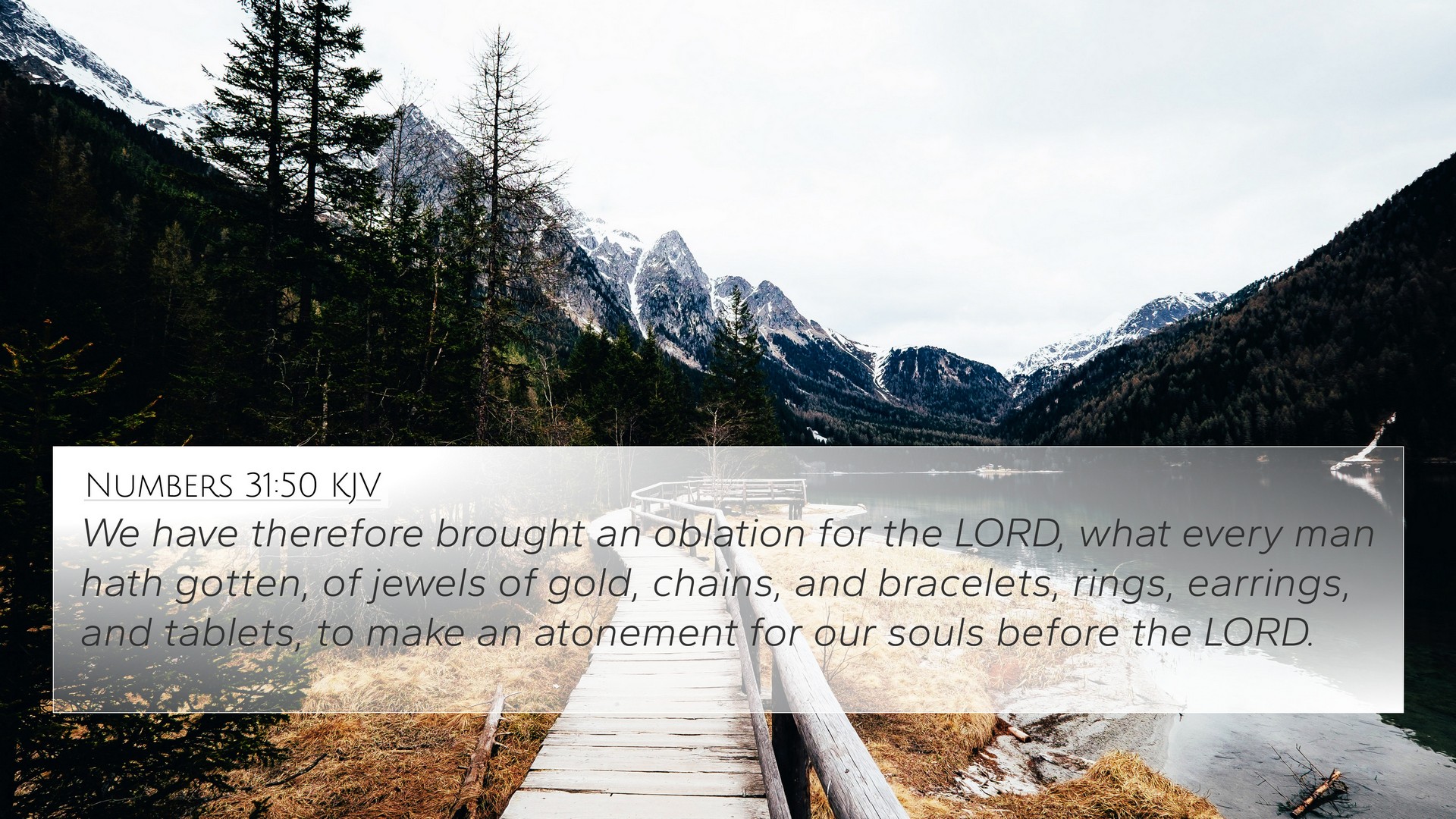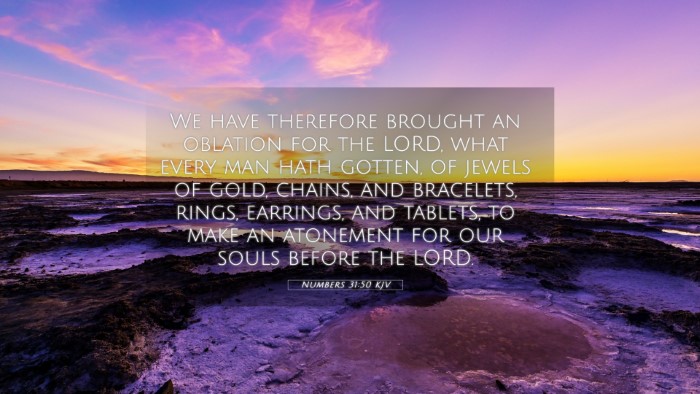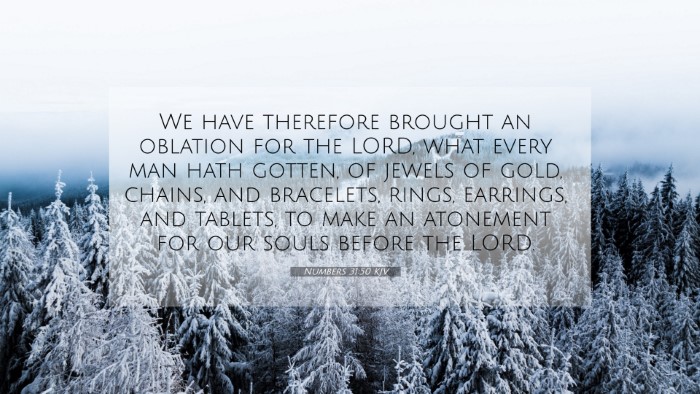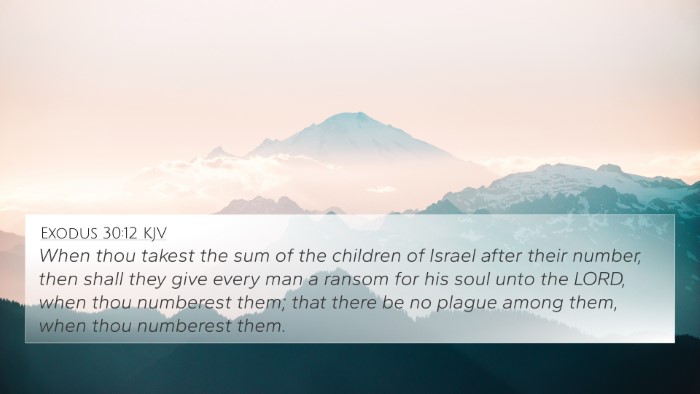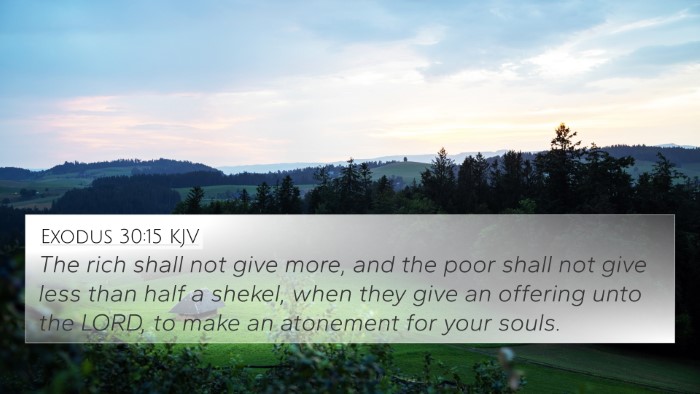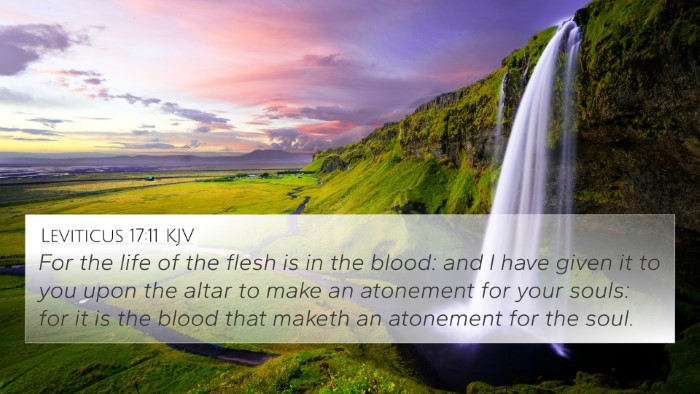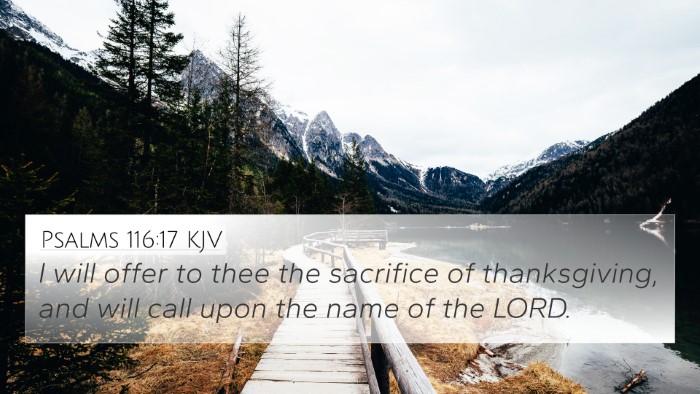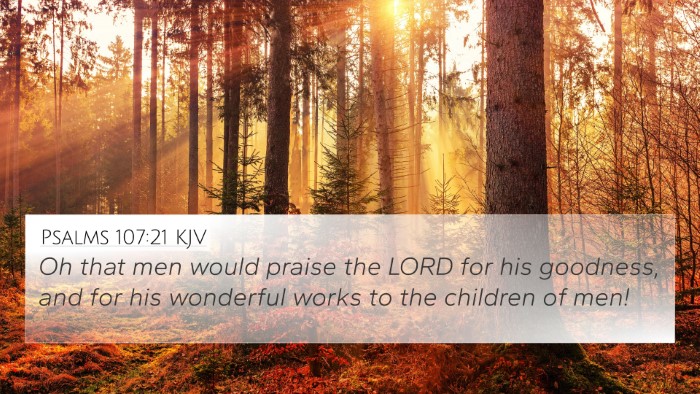Understanding Numbers 31:50
Bible Verse: Numbers 31:50
Content: "We have brought an offering for the Lord, what every man found of ornaments of gold, chains, and bracelets, rings, earrings, and tablets, to make an atonement for our souls before the Lord."
Summary of the Verse Meaning
This verse captures a moment of obedience and accountability among the Israelites after the battle against the Midianites. The leaders of the people come forth with offerings made from the spoils of war, acknowledging God's authority and their need for atonement.
Insights from Commentaries
-
Matthew Henry:
Henry emphasizes the importance of dedicating the spoils of victory to the Lord as a recognition of His grant of victory. He notes how the offerings symbolize gratitude and the acknowledgment of divine providence.
-
Albert Barnes:
Barnes highlights that the offerings were significant as they represented not just material wealth, but rather a devotion of the heart towards God. He reflects on how this action reflects the importance of making amends and seeking God's favor through tangible gifts.
-
Adam Clarke:
Clarke elaborates on the types of ornaments mentioned. He suggests that these gifts served to purify the souls of the Israelites, illustrating the necessity and value of sacrificial offerings as part of the covenant community's relationship with God.
Concept of Atonement
A key theme in this verse is atonement, which reflects the process of reconciliation between God and His people. The leaders recognize their need for divine forgiveness and collective purity through the offerings they bring. This serves as a precursor to later theological understandings of atonement found in the New Testament, further enriching the interpretative layers of Scripture.
Bible Verse Cross-References
- Exodus 30:12: This verse discusses the concept of a census and the corresponding ransom for one's soul to maintain accountability before God.
- Leviticus 5:15-16: These verses introduce the idea of guilt offerings, indicating the importance of restitution and acknowledgment of sin.
- Deuteronomy 12:6: This speaks of offerings being brought to the Lord as part of worship and communal faith practice, linking sacrificial acts to corporate identity.
- 1 Samuel 15:22: Emphasizes that obedience is better than sacrifice, connecting the heart's intent with physical offerings.
- 2 Corinthians 5:18-19: Ties the theme of reconciliation through Christ, showing the continuity between the Old Testament practices and New Testament fulfillment.
- Hebrews 9:22: Discusses the need for blood in atonement, situating Numbers 31:50 within the broader sacrificial system of the Bible.
- Philippians 4:18: Paul mentions offerings in the New Covenant context, showing a connection to sacrificial gifts brought before God.
Connections between Bible Verses
The act of offering in Numbers 31:50 can be viewed through the lens of various theological themes present throughout Scripture:
-
Sacrifice: The doctrine of sacrifice evolves from these early offerings to the ultimate sacrifice of Jesus Christ.
-
Community Responsibility: This verse underscores the notion that leaders are accountable for not only their actions but also for the moral and spiritual standing of their community.
-
Divine Provision: The gold and ornaments symbolize God’s provision for His people even in difficult times such as war.
Thematic Bible Verse Connections
The themes found in Numbers 31:50 resonate with various other themes across the Scriptures, creating profound dialogues:
-
Thankfulness: Celebrating God's provision in hardships, which can reflect the themes found in Psalms of thanksgiving.
-
Restoration: The concept of atonement and restoration lays groundwork that resonates in prophetic literature and teachings of Jesus.
Conclusion
Numbers 31:50 serves as a rich text for understanding the complexities of atonement, obedience, and community responsibility in the biblical narrative. Through comparative Bible verse analysis and thematic exploration, connections are drawn that not only enhance our understanding of this singular passage but also link it to the overarching story of redemption throughout the Bible.
